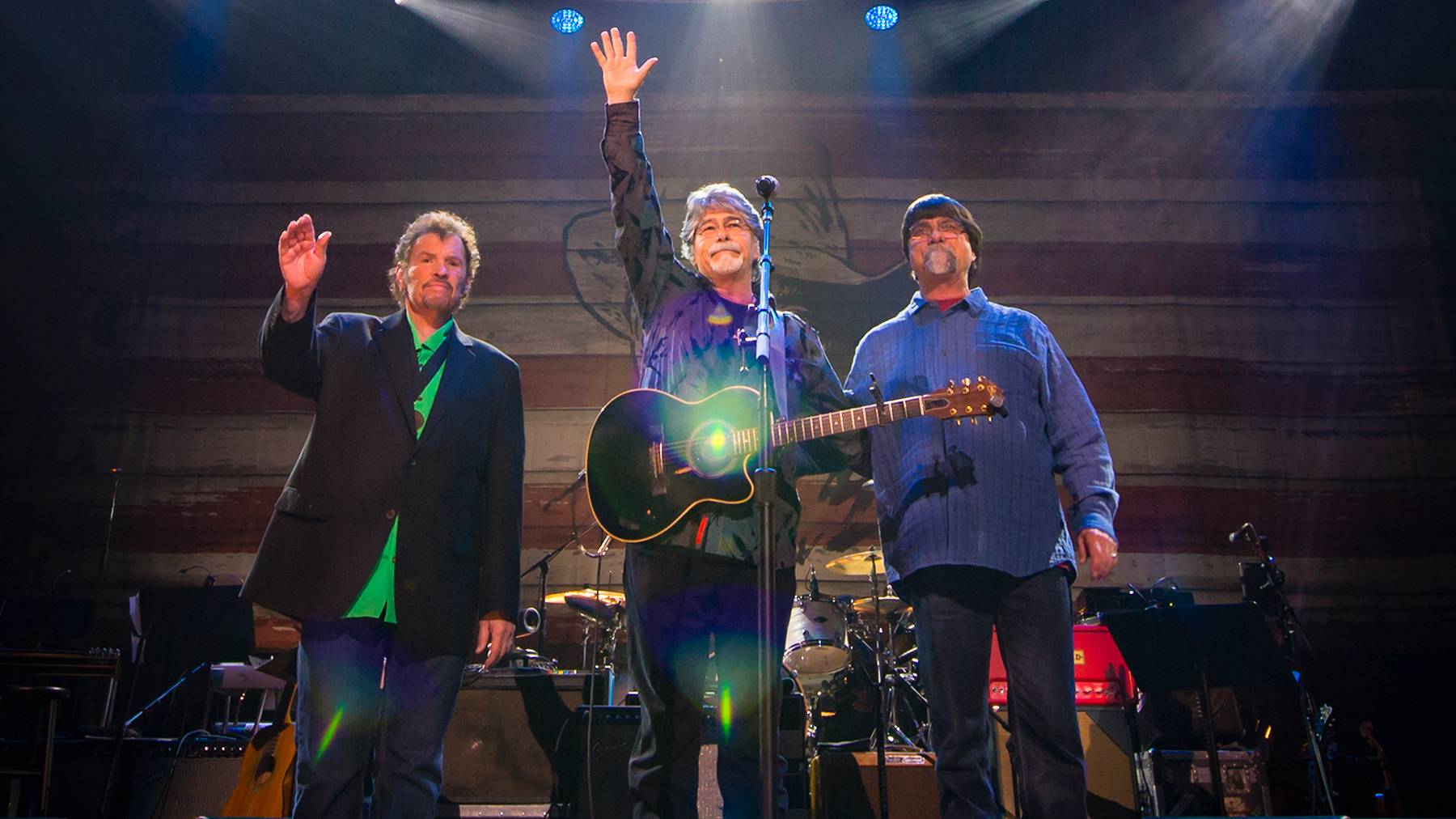Sturgill Simpson Puts a 'Metamodern' Spin on Country Music

Sturgill Simpson was recently accosted after a show in Wisconsin by a woman who accused him of promoting Gnosticism with his new single, "Turtles All the Way Down." The song discusses Jesus, Satan, Buddha and "reptile aliens made of light" before revealing that "love's the only thing that ever saved my life."
Initially, he was taken aback by the accusation.
"This lady paid for a ticket and sat through the entire show just to tell me that," Simpson says. "But I'm not a Gnostic, and that's not what that song is about. I thought for a second to explain it to her but realized it would only make the situation even more awkward and difficult. She had made up her mind."
It's not every country singer who gets accused of Gnosticism -- or even knows what it means. (I had to look it up myself.) But Simpson, who grew up in the hills and hollers of eastern Kentucky and often attended a snake-handling Pentecostal church, is as well-read as he is open-minded.
The liner notes to his second album, Metamodern Sounds in Country Music, include shout-outs to Aldous Huxley and Rick Strassman, authors of Brave New World and DMT: The Spiritual Molecule, respectively. He's not a promoter of any one particular ideology yet finds something of interest in almost all of them.
Despite his album's long-winded title, Simpson comes across as a traditionally rowdy honky-tonker with a voice that recalls Merle Haggard, guitar licks that bring Buck Owens to mind and an intriguing repertoire of cover songs. One of the most compelling tracks on Metamodern is a cover of "The Promise," the lone hit from the late '80s group When in Rome.
CMT Edge: What led you to cover "The Promise"?
Simpson: I always wanted to do an organic, countrypolitan, Roy Orbison version of that song, and I thought since we were making this album centrally-themed around love, it was the perfect excuse. Symbolically, it fits with the title of the record -- taking something from the '80s and taking it back even further in time.
I toyed with the idea of doing a complete scene-for-scene remake of the video, which was filmed through all these windows in this house and had all these very melodramatic hair flips. I wanted to pay homage. Dude had righteous hair.
Have you heard from When in Rome about the cover?
Hopefully, those guys dig it. I hope they don't take any offense that I changed their version so much. If they even hear it. On my first album, I covered an old Steve Fromholz song that Willie had a hit with. I knew a guy who knew Steve Fromholz, and he gave him the record. Apparently he hated what I did to his song!
You mentioned the title, so I have to ask: What does "metamodern" mean?
Everybody keeps asking me that. The best I can explain is, there's an essay that came out last year by a guy named Seth Abramson, which was the one that actor Shia LeBeouf tried to claim as his own. It's interesting because Abramson homes in on the way everybody is obsessed with nostalgia even though technology is moving faster than ever. I wanted to make an album that takes a journey through all my favorite periods in music and then culminates in something that will most likely end my career.
It's also an homage to my favorite Ray Charles record, Modern Sounds in Country and Western Music. People have asked me what it's all about, and when I try to sum it up, it's spread so far across the board, all this crazy psychobabble, that I've found it's best just to say the album is about love.
That's certainly the gist of "Turtles All the Way Down," which suggests that all of these grandiose theories aren't as powerful as the everyday idea of love.
It's really the only thing that ever saved me. It made me wake up and really aspire to be a better human being. And every day, it still does. You met someone who sees past your faults and encourages you to believe in yourself -- that is the most beautiful thing I've ever experienced in my life. We all need that.
For me, that's what "Turtles" is all about. Everybody says there's this drug talk and some things that people might interpret as blasphemy, but it's not. It's about not getting too hung up looking for meaning in anything. Most people home in on the drug references, and I don't want to beat that to death, but some people spend 50 years meditating on the side of a mountain and other people drop 10 hits of acid. Maybe they're having the same experience.
But that's neither here nor there. That song may be the end of my country career. That's fine. I could go back to the railroad. I liked that job.
What did you do on the railroad?
I worked for Union Pacific. I started out as a conductor at an intermodal switching facility outside of Salt Lake City. We'd pull in trains from all over the country, break them apart, consolidate the freight and build other trains. It was great until I screwed up and took a management position. Then it became no fun very quickly.
I hit complete soul-sucking rock bottom, and for the first time in years, I started getting the guitar back out. Finally my boss said, "I know you're miserable, so why don't you give music an honest go." I had my wife's full support. We sold everything and moved to Nashville about four years ago. I don't regret it so far.
I never really had any grand aspirations of mainstream country success because I know what that entails, and I'd probably be too much trouble for people to work with. If I can just reach the point where I can get 200 or 300 people in small clubs and I'm carving out enough money to pay my bills, then I'm the happiest guy I know.
Get More:





